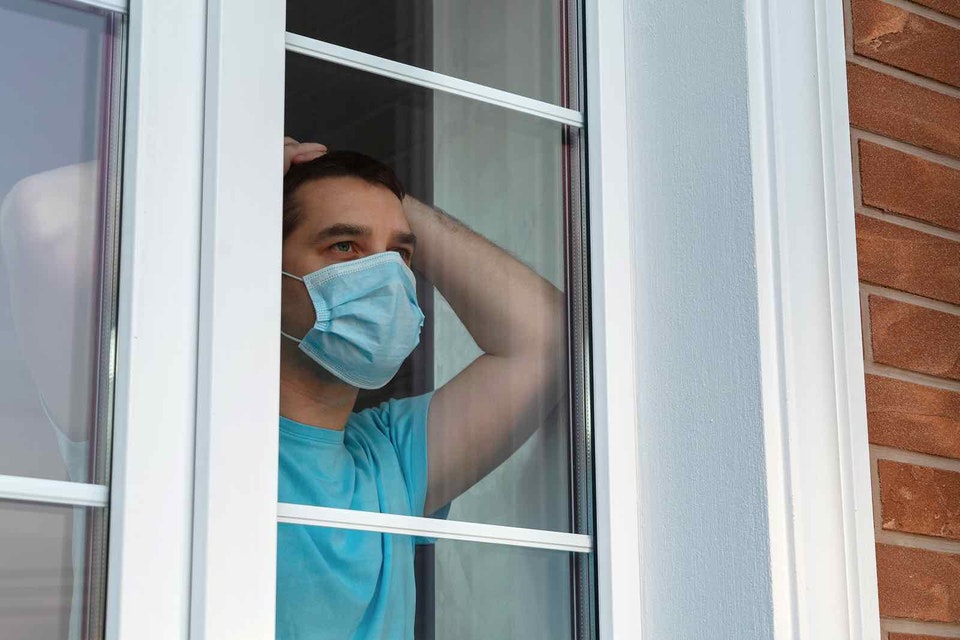The COVID-19 pandemic has weakened the world’s general population including doctors and caregiving staffs and their morals. This pandemic situation is a source of anxiety and distress for the staff members and doctors especially. According to a study around 1,257 healthcare professionals from 34 hospitals in different regions of china treating patients with COVID-19 reposts clinical evidence.
It has been experienced that doctors in hospitals are more connected to COVID-19 hospitalized patients. They are more prone to have symptoms of depression, anxiety, insomnia, and psychological distress as compared to the caregivers outside the risk area. They can suffer from the feelings of vulnerability or loss of control, concerns about their health, the risk of infecting their families, and tendencies to isolate themselves.
Doctors are at a higher risk to adapt infection or pandemic related distress than the physicians as they pass longer direct contact time with the patients.
Challenges and their solutions
As we know that in this pandemic situation, schools, colleges, universities, offices, malls all were closed but the people who are working on low wages like industrial workers, sanitization workers are not able to work from home. They are needed to come to their workplaces every day. The same thing happened to the working staff of hospitals including nurses, doctors, pharmacists, and other co-workers and helpers.
These people are at a higher risk of getting stress and anxiety related to the COVID-19 pandemic. They have difficulty in concentration, may take a longer time to accomplish a task, have difficulty in thinking, challenging work, and have difficulty in juggling tasks and responsibilities.
It is logical for them to be stressed because whenever there is a catastrophe there would illogical to feel normal. We have to adjust and adapt to these abnormal circumstances and should find a new equilibrium. It is rightly said when there is hope there is away.
These challenges are not so difficult to cope with. We have to support each other who are suffering from mental health issues in this crisis. This world is like a paradise in hell where we all have to cope with abnormal circumstances in a sane manner.
Measures to cope with this situation
Several types of measures were taken by the ministers and heads of each state of this world to cope with the COVID-19 pandemic.
The prime measure was to allow frontline doctors to rest several times a day. There should be a good awareness of the duration of the crisis to avoid too rapid exhaustion of available human resources. Online communications systems were made to reduce the pressure on caregivers. By doing so, they can convey precise information without the risk of being contaminated with the virus affected individuals.
There should be free telephone or videoconference interviews provided to health care providers and physicians to reduce all possible risks. This could be beneficial for the authorities to keep an eye on every discomfort result from the COVID-19 crisis.
Authorities concerned must have made time available for team meetings either physical or by online resources. This meeting helps professionals to share their faced challenges and can support each other morally, validate their decisions, and identify creative solutions to problems.
Physicians can make a team with less experienced co-physician to reduce their levels of stress and anxiety. They should take short breaks several times a day and analyze their own physical or mental state.
Individuals should keep themselves in quarantine if they met with an infected COVID-19 patient. Moreover, managers must be trained to prevent and detect the appearance of symptoms of distress in staff. Physicians should avoid judging themselves harshly as it is normal in this pandemic condition to feel overwhelmed.
Other measures can also be taken to avoid such risks by providing regular contact times to discuss decisions taken and verify the mental state of staff. Authorities should be proactive about staff concerns and the measures to be taken in place.
They should train management staff to recognize signs of burnout, encourage staff to talk about their vulnerabilities, limitations, or problems psychologically without fear of blame. The concerned organization should provide schedules that support resilience and encourage periods of regular breaks, facilitate access to wellness methods that staff use in time.
Factors of fear in doctors
Personnel working in the field of health and social services report their concerns and fears related to the COVID-19 pandemic. These include concerns about their physical and mental capacities, the health of loved ones, and the risk of contagion. They face the fear of contracting the disease and associated death, fear of lacking protective equipment, mental health issues.
Mental issues of staff members are due to fatigue, stress, aggravation of pre-existing physical or mental health problems, increased consumption of alcohol, and other psychoactive substances. They bear anxiety and depression, the weariness of compassion and perception of helplessness, disturbed sleep, and post-traumatic stress disorder, concentration, and loss of appetite.
Increased risks of COVID-19 related distress and anxiety are shown in peoples having pressure from their relatives to leave their job. In those recently bereaved, with chronic illness or a history of mental disorders. This can also be shown in people having difficulty in reconciling works and family demands and in those whose family members are infected or suspected of being or seriously ill.
COVID-19 related mental health risks are higher in the individuals who are in direct exposure to the suffering patients, in workers of the intensive care department and geographic epicenter.
It is shown that mental disabilities like depression, anxiety, and distress occur more in people who lack cohesion within teams, lack planning, and organization of work. People who have a lack of trust in colleagues, training, and use of equipment are more prone to face these mental challenges.
These problems can also be shown in the individuals lacking psychological support and reluctance to ask for help and in those who face family and relationship disheartens.
To learn more about the challenges doctors are facing because of the COVID-19 check this blog
